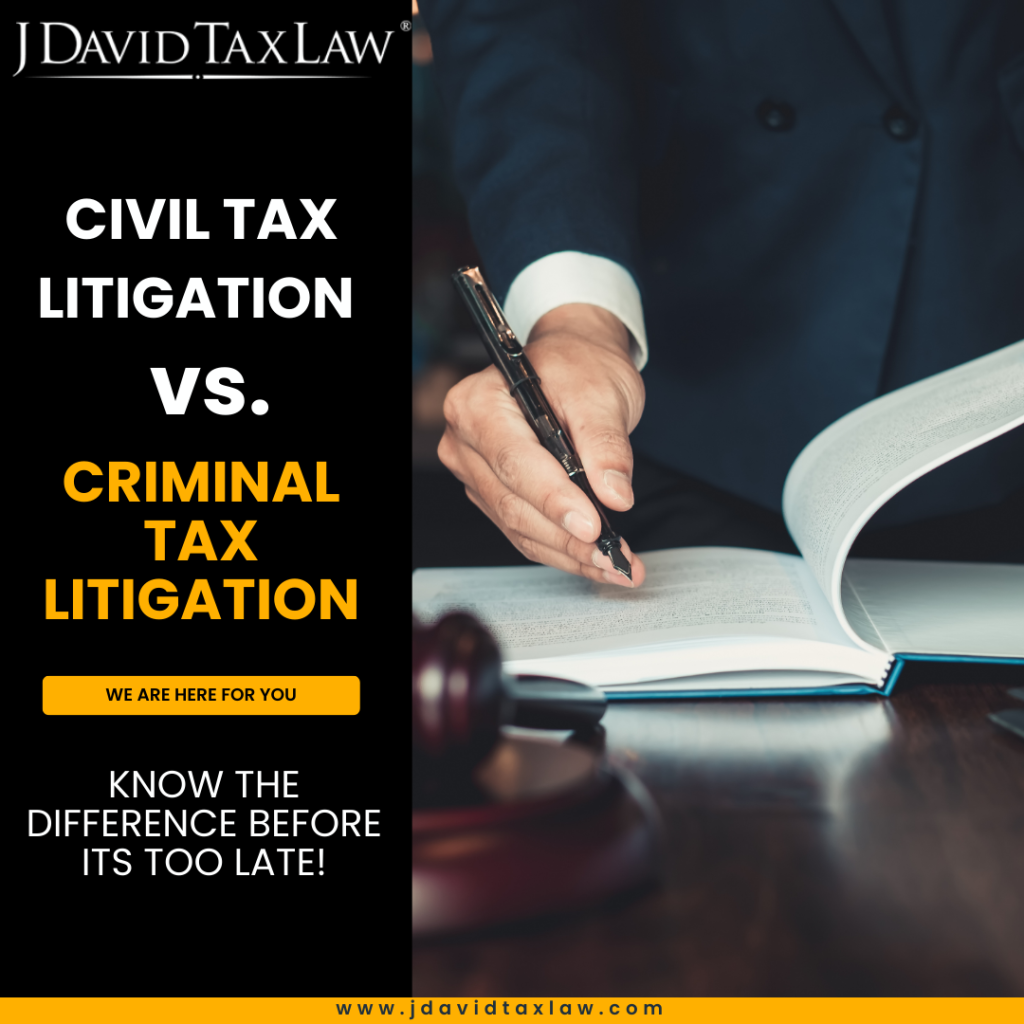Tax disputes can be overwhelming, whether you’re a business owner or an individual taxpayer. When negotiations with tax authorities fail, litigation becomes a necessary path to resolve disputes effectively.
A tax litigation attorney specializes in handling such legal battles, ensuring that taxpayers receive fair representation. From defending against tax assessments to handling criminal tax litigation, these legal professionals play a crucial role in navigating complex tax laws.
Understanding the Role of a Tax Litigation Attorney
A tax litigation attorney represents clients in disputes with tax authorities such as the Internal Revenue Service (IRS) and state tax agencies. Their primary responsibility is to defend taxpayers in court, ensuring compliance with tax laws while protecting their rights.
Unlike general tax attorneys who focus on tax compliance, a tax litigator is specifically trained to handle cases that have escalated to litigation.
These attorneys assist with:
Disputes over tax assessments
Defense in criminal tax litigation cases
Tax fraud investigations
Representation in tax court litigation
Negotiating settlements and payment plans
Appeals and tax controversy resolutions
Advising on complex tax transactions and potential litigation risks
Preventing escalation of tax disputes through strategic planning
Tax litigators also provide valuable insight on how a particular case might be viewed by judges and tax authorities, using their litigation experience to anticipate opposing arguments. They work closely with CPAs and financial consultants to build strong legal defenses and accurate representations of financial records.
Tax Litigation for Businesses
Businesses often face tax challenges that require legal intervention. The complexities of corporate tax laws and federal tax regulations make it essential for companies to seek representation from experienced tax litigation attorneys. Here’s how a tax litigation lawyer assists businesses:
1. Defending Against IRS Audits and Assessments
When the IRS audits a company, disputes over tax liabilities can arise. A tax litigation lawyer helps businesses challenge improper tax assessments and negotiate settlements, ensuring they don’t overpay due to miscalculations.
A seasoned tax attorney can identify procedural errors made during audits, push for reconsiderations, and minimize the financial impact of audit findings.
2. Handling Corporate Tax Litigation
Corporate tax litigation covers a wide range of disputes, including deductions, international tax issues, and transfer pricing. A tax litigation attorney ensures businesses comply with regulations while minimizing financial exposure.
These attorneys may also challenge IRS procedures and fight to protect privileged information during aggressive enforcement.
3. Resolving Payroll Tax Issues
Unpaid payroll taxes can lead to severe penalties. A tax controversy attorney negotiates with tax authorities to settle these issues before they escalate into litigation.
They also assist with trust fund recovery penalties and defend against claims of willful noncompliance.
4. Managing State and Federal Tax Disputes
Businesses operating in multiple states may face federal tax litigation or state tax disputes. An experienced tax litigation law firm provides legal representation at both levels, ensuring compliance with various tax laws.
This includes contesting aggressive state enforcement actions and addressing sales tax and nexus issues.
5. Strategic Tax Risk Mitigation
By working with a tax litigation firm proactively, businesses can identify and mitigate potential risks before they lead to audits or disputes.
Litigators also support mergers, acquisitions, and internal reviews to detect and correct tax vulnerabilities.
Tax Litigation for Individuals
Individuals can also face tax disputes that require legal assistance. Whether it’s a disagreement over tax liability, alleged fraud, or failure to file returns, a tax litigation attorney helps resolve such matters efficiently.
1. Representation in Tax Court
Individuals who disagree with the IRS about tax deficiencies or penalties may need to take their case to tax court litigation.
An attorney presents evidence, argues on behalf of the taxpayer, and negotiates settlements when possible.
2. Defending Against Tax Fraud Accusations
If the IRS suspects tax fraud, it can lead to severe consequences, including criminal charges.
A tax litigator defends individuals by challenging the IRS’s evidence and negotiating plea agreements when necessary.
3. Resolving Tax Collection Disputes
Unpaid taxes can lead to liens, levies, and wage garnishments. A tax litigation attorney negotiates installment agreements and offers in compromise to settle outstanding debts.
They also represent clients in Collection Due Process (CDP) hearings.
4. Appeals and Settlements
When an IRS ruling is unfavorable, a tax controversy attorney can file an appeal or propose settlements to avoid litigation.
They may also pursue mediation or fast-track settlement options.
5. Estate and Gift Tax Disputes
High-net-worth individuals may face disputes related to estate and gift taxes. A tax litigation attorney works with advisors to defend against audits and litigation.
These cases often involve valuation disagreements or reporting inconsistencies that require skilled legal argumentation.
Criminal Tax Litigation: When You Need a Defense Attorney
Criminal tax litigation arises when a taxpayer is accused of serious violations such as tax evasion, fraudulent tax returns, or willful failure to file.
In such cases, hiring an experienced tax litigation lawyer is crucial for building a strong defense.
A defense attorney gathers evidence, interviews witnesses, negotiates with prosecutors, and represents clients in court.
In some cases, they may challenge how the IRS obtained its evidence or seek suppression of key testimony.
The Tax Litigation Procedure
The tax litigation procedure involves several steps, starting from an initial dispute with tax authorities to resolving the case in court.
1. Pre-Litigation Assessment
The tax litigation attorney reviews the case, gathers evidence, and determines the best course of action.
2. Administrative Appeals
Before filing a lawsuit, an appeal may be filed with the IRS Office of Appeals to resolve the issue without going to court.
3. Filing a Lawsuit
If no resolution is reached, a lawsuit is filed in tax court, district court, or the Court of Federal Claims.
4. Discovery and Pre-Trial Proceedings
Both parties exchange evidence, conduct depositions, and prepare for trial. Settlement discussions also take place during this stage.
5. Court Trial
The tax litigation lawyer presents the case, cross-examines witnesses, and argues in favor of the taxpayer.
6. Resolution or Appeal
The case is either resolved or appealed if the outcome is unfavorable. Attorneys advise on next steps and post-trial compliance.
Choosing the Best Tax Litigation Firm
Finding the right tax litigation law firm is essential for achieving a favorable outcome. Key factors to consider include:
Experience with tax litigation cases
Specialization in tax law
Reputation and track record
Resources, such as access to expert witnesses
Accessibility and clear communication
Fee structures that are fair and transparent
Many firms also offer free consultations so potential clients can evaluate their options before committing.
Conclusion: Stay Informed
Whether you’re facing an IRS audit, tax fraud allegations, or corporate tax litigation, hiring an experienced tax litigation attorney is crucial. From navigating the tax litigation procedure to securing favorable settlements, these professionals play a vital role in protecting financial interests.
The sooner you involve a tax litigation attorney, the more options you’ll have for resolving your case efficiently and favorably. If you’re dealing with complex tax issues, don’t wait for the situation to escalate. Seek legal representation and take control of your financial future today.
Frequently Asked Questions about Tax Litigation Attorneys














